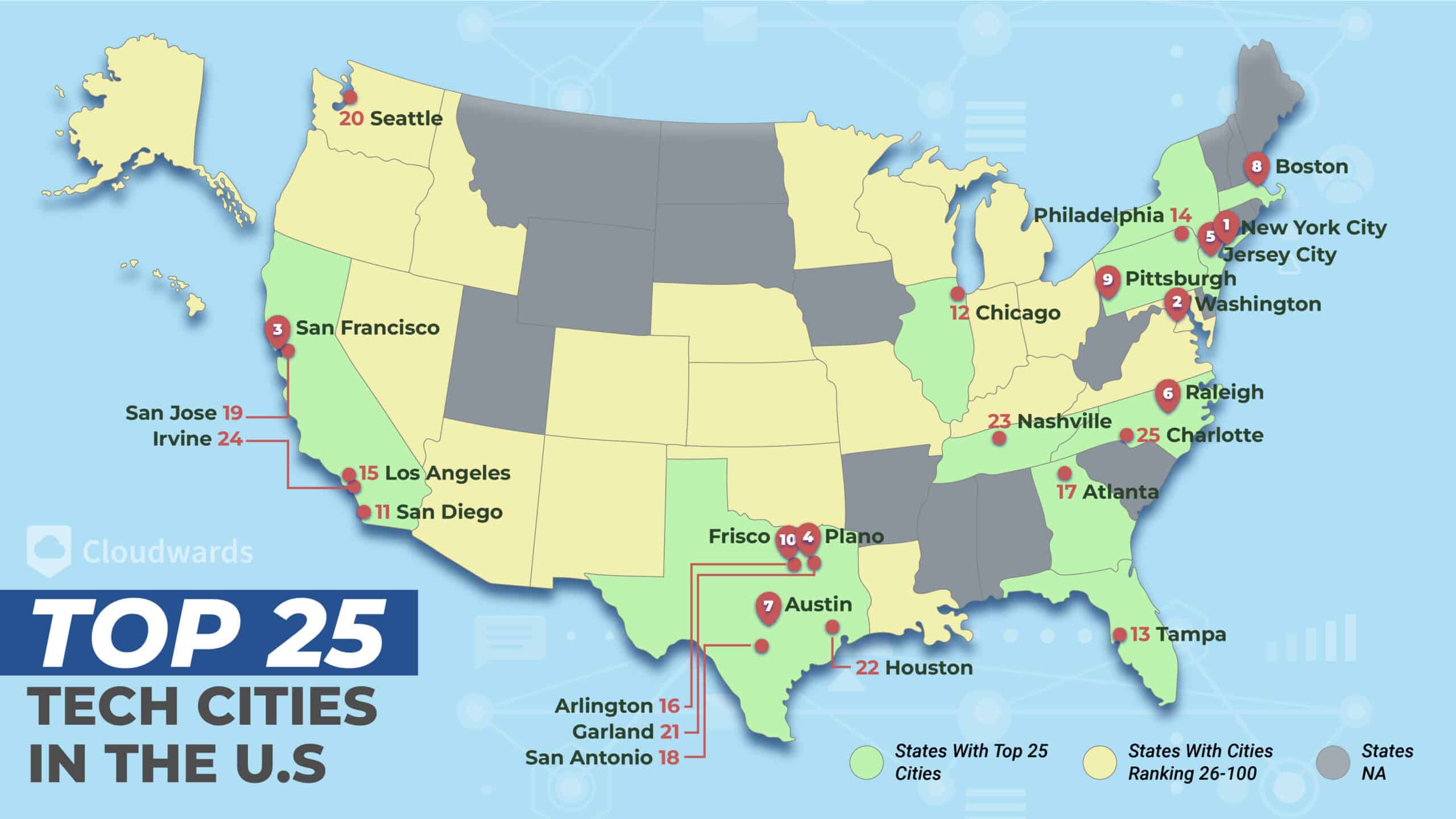Houston falls behind other Texas cities in report ranking best tech hubs
ouch
In a recent report analyzing metrics for best cities for tech hubs, Houston failed to crack the top 20 — unlike a few other Texas cities.
The new report, "The Top Tech Cities in the US: Ranking 100 Cities in 2024," by online security experts Cloudwards, examined 100 tech-reliant cities in the nation across 17 key indicators, including salaries for information technology professionals, a city's cost of living, internet quality, job opportunities and tech-related companies, and more.
Austin is the No. 7 best tech city in the nation, yet somehow not the best in Texas; The Dallas suburb of Plano outshone the capital city at No. 4, and its neighbor Frisco came in at No. 10. Houston, however, came in at No. 22.
 Courtesy of: Cloudwards.net
Courtesy of: Cloudwards.net
Here's how Houston stacked up in the major categories in the study:
- No. 13 – Cost of Living and Tech Salaries
- No. 16 – Career and Education
- No. 40 – Tech Community
- No. 44 – Innovation and Entrepreneurship
- No. 53 – Internet Coverage and Quality
Austin's spot in No. 7 behind Plano's No. 4 might be surprising, but, according to the report, the Texas capitol's higher cost of living is to blame.
"Texas’s capital, Austin is a good place for startups since it’s easy to find top talent, initial capital and inexpensive office space," wrote the report's author. "However, due to the rapid rise in population (3 percent between 2021 and 2022), the cost of living has increased and access to good real estate has become more costly. Even so, the city’s distinct culture, access to educational opportunities and work-life balance continue to make Austin a popular choice for many IT professionals."
With many employers still embracing remote work, having a good wifi connection can make or break a person's ability to work from home. It seems that helped Plano get a leg up on Austin; 96 percent of Plano households have internet access, which was the single best connection rate of any city in the study. Austin didn't make the top five — but at least it didn't make the bottom five either.
Frisco also topped out in one category in particular, earning the title as "the most livable city in the U.S." according to Cloudwards.
Average salaries for IT professionals in Frisco come out to about $95,516 annually, which is only a $217 difference from Plano at $95,733. Given Austin's middling rank on the list above, no data was shared.
Central Texas didn't have much representation on the list. Although there were several North Texas suburbs, the only city near Austin was San Antonio, which came in at No. 18. It was the "Innovation and Entrepreneurship" category that brought it down, ranking No. 72.
Nationally, the cities that round out the top five most tech-savvy cities in the U.S. are:
- No. 1 – New York City, New York
- No. 2 – Washington, D.C.
- No. 3 – San Francisco, California
- No. 4 – Plano, Texas
- No. 5 – Jersey City, New Jersey
------
This article originally ran on CultureMap.
- Annual report ranks 4 Houston tech companies on list of fasting growing businesses ›
- Houston ranked in the top emerging North American startup ecosystems ›
- Houston tech ecosystem ranks as No. 5 in the world for emerging startup hubs ›
- Houston tops Texas as No. 1 city for growth in tech jobs, says new report ›
- Houston ranks as the top market for tech job growth ›
- Report: Houston secures spot on list of top 50 startup cities - InnovationMap ›
